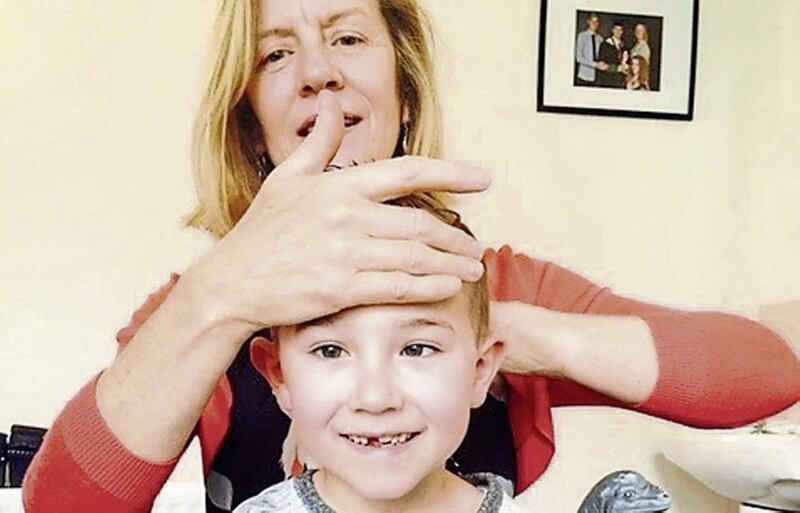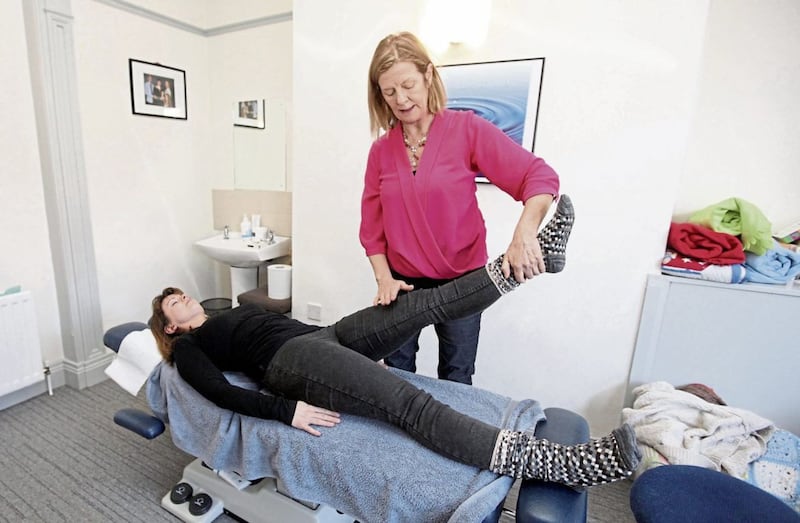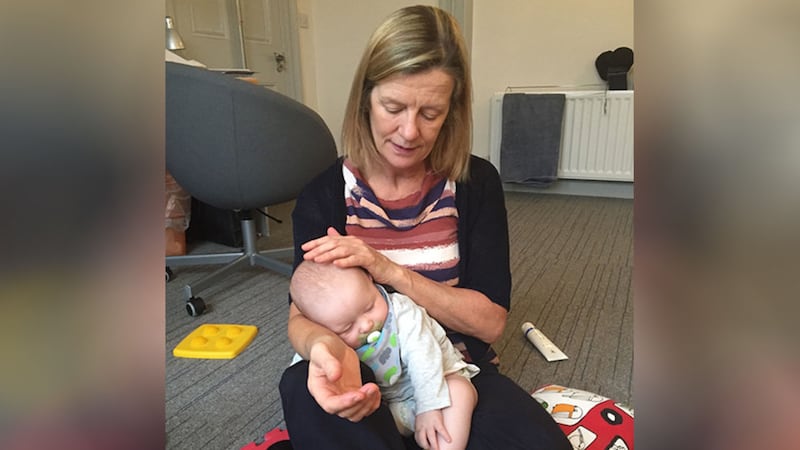DOES your baby have difficulties around latching on or keeping milk down? Does your toddler not sleep well or suffer with constipation? Is your older child a fussy eater, resistant to change or have difficulty riding a bicycle? Or perhaps you have a teenager who is struggling with exam stress or refusing to go to school?
Now, have you ever considered that experiences in your child’s early years and even their birth itself could be contributing factors to their current and ongoing behaviour?
Such experiences can include becoming stuck in the birth canal, an emergency Caesarean section or the use of forceps in a delivery. They can lead to physical difficulties, such as the inability to crawl as an infant, but children can also carry the memories of the pain of birth in their bodies as lived experience, which may become reactivated after birth and throughout life.
“When a child is out of balance as a teenager you can track it back to where they didn’t get enough opportunity to build up their resilience as a younger child and then thread it right back to neuro-developmental issues, including the birth,” says Anne Matthews, clinical director of Belfast Chiropractic Clinic and one of the UK’s leading pre and perinatal educators.
Anne, who opened her multidisciplinary clinic 30 years ago, with the vision of helping the physical, emotional and mental health needs of families, has spent many years researching and treating children with unresolved birth issues.
"Our birth and early life impact our lives emotionally, structurally and psychologically. Mothers need to start sharing their 'after birth' stories to understand and help both themselves and their children.

“I'm in a really privileged position to see lives completely turned around. We are not blaming, nor are we fixing children. We are simply giving children and parents the resources and tools to be more aware of themselves and helping them to reset their nervous systems."
In assessing children for treatment, Anne intuitively integrates her therapeutic skills from the areas of physiotherapy, chiropractic, cranio-sacral therapy, baby therapy and child development. During the examination, particular attention is put on spinal mobility and alignment. The head shape and symmetry of the cranial bones are evaluated. For issues with feeding difficulties, the sucking reflex, jaw and mouth muscles will be assessed.
In releasing points of tension in the body and reintroducing balance, Anne uses light and gentle touch and is always mindful to fully engage the child in the process.
"I always start by asking the child why they believe they are here and would explain the skeleton and inside of a brain structure even to a three-year-old, as I want them to be aware of their own body and how they are feeling," she explains.
“When a child is off-balance, they know they are off and their self-esteem and awareness is affected. When they are balanced they are more grounded and believe they can do anything, from scoring goals in football to sitting still and focusing in class.”
Anne will also guide and empower parents to manage their child from a more informed point of view, showing them how daily massage can help their child let go of tension, help them feel more grounded and lead to restorative sleep. Teenagers will be given self-care techniques to help them keep their bodies neutral and calm.

Mind coach, nutritionist and hypnotherapist Aisling Cowan is one of nine complementary therapists working in Belfast Chiropractic Clinic. Over recent years, Aisling has counselled an increasing number of young people with mental health issues and is passionate about educating parents about the need to build children's resilience to boost their ability to bounce back from life's challenges.
"We need young people more grounded in the moment. They are pushed too much to succeed with constant exam pressure. While exams teach us to live for the future and to believe that will be happier when we get the next achievement, what we need to do is to start being happy now."
So how can we help build children's resilience?
“We need to keep children moving. They are being asked to sit down too long. In schools we need to have movement breaks and outdoor time as well as physical activity during leisure with the family. It is especially important that older children maintain physical hobbies leading up to exams,” says Aisling.
She also advices parents to “stay in the moment” and to be reactive to what their children are telling them.
“Don't rush or look at your phone when your children is trying to tell you something. Instead, get down to their eye level. In order for children to feel safe and secure and learn the communication skills they're going to need in order to be heard when they are older, we as parents need to connect with and really listen to them.”
Children also need to be taught to cope with failure. So, rather than do everything for them, parents should encourage independence skills, from dressing themselves to learning to cook. And when they don’t win that race on sports day, don’t make excuses or reward them, simply empathise and ask them, “How do you feel?”
Finally Aisling stresses the need to build a close sense of togetherness in the home and for parents to get children involved, from an early age, in household chores, without feeling the need to reward them with pocket money.
“You shouldn't be putting monetary value on something that is natural. By asking children to set the table or clean up after themselves you are teaching them about love, consideration, compassion and respect,” she says.
:: Anne Matthews will explain how by reading baby body language we can understand the tension patterns that a baby or child might be holding within their body in a talk for parents and carers on April 14 from 3-6pm at Cooke Centenary Church Hall, 15 Park Road, Belfast. Booking in advance at Bookwhen.com/annematthews. For further information on all services visit Belfastchiropracticclinic.com


